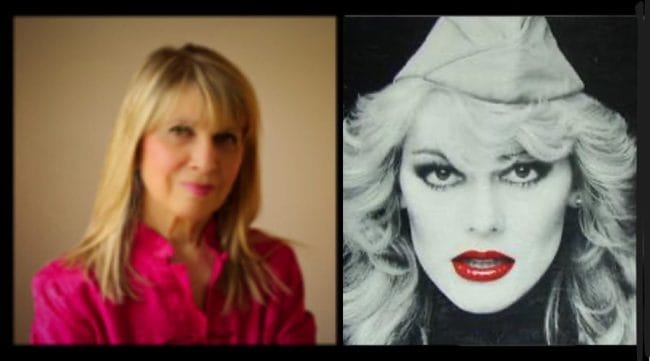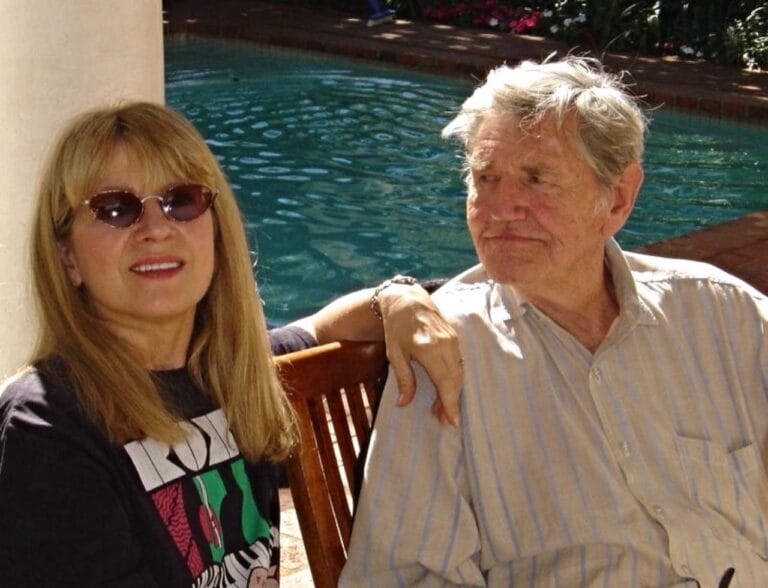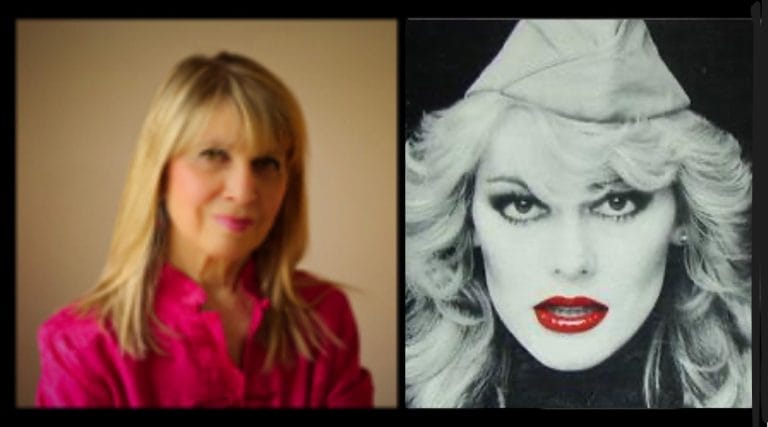Jani Allan lost her fight against cancer in July 2023 and I planned at the time to write an obituary but it remained incomplete among my website drafts. A chance recent Facebook reminder of a story I wrote a decade ago revived my intention of acknowledging her as a controversial columnist on the SA Sunday Times in the 1980s.
The story in question was written during the Oscar Pistorius trial and while she is no longer alive to defend herself, I found it interesting to read now hence my decision to republish it. As it happened, Jani blocked me over some other perceived slight but later sent me a DM revising her reaction while reinstating our “friendship”.
Unknown to today’s readers, it’s a testament to her following 40 years ago that her death caused ripples in South Africa almost 25 years after she left the country. Her fans loved her Just Jani columns and her controversial life choices had everyone talking back in the day and more recently.
Jani and I worked under the same roof at SAAN (South African Associated Newspapers) in the early 1980s and yet we never formally met. It was only via social media that we began conversing in 2014. It was an amicable exchange until I took issue with her claims about South Africa.
At the time, I was writing about Oscar Pistorius for SA People.com which also published Jani’s blogs about Oscar. Under the heading, Suzanne Brenner Takes Issue With Jani Allan, SA People.com ran my reaction to a radio interview Jani had with a New Zealand Radio station.
RIP Jani, you rocked a few boats in your time.
Below is the 2014 story that annoyed Jani Allan.
SUZANNE BRENNER TAKES ISSUE WITH JANI ALLAN
It’s unusual for one writer to write about another but a post on my Facebook page last night grabbed my attention. My FB friend and tweetpal Jani Allan posted a recent interview with someone called Glen Larmer on New Zealand’s RadioLive. So why am I writing about her?
SAPeople readers will be familiar with Jani’s Dear Oscar letter, which recently appeared on these pages and others besides. So when I heard Jani claim there was no freedom of speech here and that her opinions “would not be allowed in South Africa”, my hackles rose.
Currently, our celebrated constitution protects freedom of speech and while the so-called secrecy bill may be lurking, I very much doubt anything Jani has said would be cause for concern. In the meantime, I suspect we can say a great deal more in South Africa than would be allowed in America where Jani resides, though, of course, the world treads uncertainly into new territories with social media playing such a pivotal role.
On the subject of what one can or cannot say in this country about the sub judice rule, I recently began a conversation on Twitter with Dario Milo (@Dariomilo), a media law expert who acted for some of the media in their application to be allowed court access for the Oscar trial.
Last year, after Oscar’s bail application, Milo and his colleague Avabi Singh authored a feature for the local Sunday Independent where they discussed “the notorious sub judice rule and the uncertainty that surrounds what it means and how it applies.”
They wrote of the “tension between the administration of justice, which it purports to protect, and the constitutional right to freedom of expression, which includes the right to receive and impart information. A breach of the sub judice rule could result in a charge of contempt of court and a criminal conviction.”
They elaborated that insofar as criminal cases go, the rule usually kicks in “from the date of arrest or when a warning to appear in court is issued. The period only ends once the final judgment on the matter is handed down after all possible appeals have been exhausted.”
The lawyers pointed out that much has changed since apartheid days, where “the sub judice rule would be breached if the statement might have influenced the outcome of a case, assuming that the court accepted that statement.”
Summing up, the lawyers concluded that “whether there is a real and substantial risk to the administration of justice, the mere existence of adverse media coverage is insufficient”, and “although the media have been replete with sensational allegations about what happened on that fateful Valentine’s Day, none of this reportage has, in our view, crossed the legal line.”
Of course, their legal opinions haven’t been tested in a court of law but by the same token nobody to date has been charged for the views they have expressed – and that includes my wordsmith sister, Jani Allan. The lady doth protest too much, methinks.
Lest it be not clear, Jani’s South African comeback and imminent book launch have been heralded here in SA by her headline-grabbing blogs and her tweets not only via social media but also in print and digital publications.
There was a time when Jani buried the story about the right-wing leader and her classic line, “I’m impaled on the blue flames of his blowtorch eyes”.
It’s anyone’s guess why she brought it out of mothballs to make an unlikely comparison with Oscar. Still, I unreservedly support Jani’s right to do so and I enjoy and welcome her colourful presence among the myriad voices commenting on Oscar Pistorius’ murder trial.
Before I let Jani off the hook, she also said more than once that her blog earned her no money and when last I looked, she was waiting on tables in America (or did she say she was a restaurant hostess?).
So I found it disingenuous at best when she hedged a repeat question from the interviewer, who had not done his homework: “If you were in South Africa, you wouldn’t be able to get that piece published, would you?” She hesitated just a moment before replying: “I don’t think so…”
Soon afterwards, Jani offered that there were no job opportunities for a white middle-aged woman.
“So I would have no voice there, there is no freedom of speech.”
Come on Jani, own up.
*****
Postscript
At around the same time, I had posted a comment on Facebook, which read: “Contrary to my expectation that Jani would regard it as more publicity for (her) book, she unfriended me but not before asking why David Bullard had been fired if there was freedom of the press here. I was sorry our newly found internet intimacy was at an end (but) I wish her well with the book.”
Theoretically, that would have been that but out of the blue later that year, I received the following note in Messenger.
“Dear Suzanne, I was pleasantly surprised to come across your comments. At the time I saw malice during our ‘fall-out’ but now I see that this was never your intention. I also understand more fully the point that you were making. Perhaps I also look at this differently given the wonderful reception I received in South Africa after 24 years away. Jani xo”





